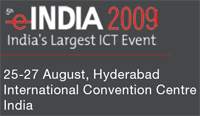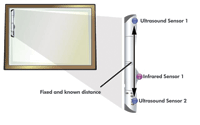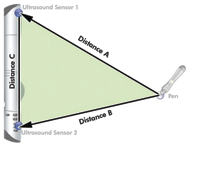HP Software University launched in India
World technology leader Hewlett-Packard (HP) has launched HP Software University (HPSU) in partnership with the Indian Institute of Hardware Technology (IIHT) to train and certify software testing professionals. The unique university will be initially launched in Mumbai, Delhi, Pune, Kolkata, Hyderabad, Noida, Chennai and Bangalore and HP has plans to add more cities over the next few months.
The global software testing market is estimated to be US$ 13 billion and India is expected to contribute 70% of the market. Its present share is US$ 6.5-7 billion. This programme from HP in the non-enterprise training space aims to address the growing demand of software testing. With a market share of over 60% in application testing, HP was well poised to address the enormous demand for Industry ready talent in software testing, HP India Managing Director Neelam Dhawan said.
MeritTrac launches India's 1st mock entrance test
MeritTrac Services has announced the launch of 1score, India's first unified mock entrance test. This test claims to help students in evaluating their preparedness for various engineering entrance examinations by taking one common test. The students get a comparative analysis of how they would perform on various leading
engineering entrance examinations, including IIT-JEE, AIEEE, CET, EAMCET, BITSAT, Manipal UGET, etc. Edurite Technologies is the academic partner for this test and provides the test design know-how for this programme.
1score evaluates students on Mathematics, Physics, and Chemistry, and creates a readiness index on the student's preparedness to face various engineering entrance examinations. The students are given a feel of new exam procedures like online applications, OMR answer sheets, etc. A detailed report and analysis of how the candidate has performed in 1score is shared along with constructive inputs on topics of strength and areas of improvement.
Cisco and Metropolis collaborate to develop sustainable intelligent cities
Cisco has signed a Memorandum of Understanding with Metropolis, an association comprising 106 of the world's largest cities, to develop its 'Vision 2030' for sustainable cities around the world. As part of this MoU, Cisco will advise Metropolis on how to build a collaborative operating model between Metropolis member cities and establish an Urban Leadership Academy to demonstrate how future cities can effectively use technology to advance clean public transportation, decrease pollution through intelligent urban development, offer pervasive access to citizen-centric services and support sustainable economic growth.
As part of the strategic collaboration, Cisco will collaborate with Metropolis over an initial two-year period to develop new practices and enhance existing models in urban development and sustainability. The collaboration with Metropolis is a significant milestone for Cisco, as part of its recently launched global 'Intelligent Urbanisation' initiative.
Intel to train 5,000 Rwandan secondary school teachers in ICT
Rwanda's Ministry of Education has signed a Memorandum of Understanding (MoU) with Intel for training 5,000 secondary school teachers in ICT. At the signing ceremony at the Ministry's headquarters, State Minister in Charge of Primary and Secondary Education, Theoneste Mutsindashyaka commended the project, stressing that it was going to enhance the development of education in Rwanda.
The Minister also revealed that Intel was going to help in revamping the Rwanda Computer Centre (RCC), a local computer assembling company to enable it to assemble computers for a larger market. Under the programme, 50 people will be trained initially, who will in turn train the 5,000 teachers around the country whose number is expected to increase to 10,000 within three years. According to the MoU, Intel will fund the development and revision of Intel Teach Curriculum, and will also fund localisation of the programme.
Untapped Indian market gets SMART focus
Terming the Indian market as largely untapped in terms of the spread of Interactive White Boards, SMART launched V280 board in New Delhi. Terry Wason, Area Manager for CEE, Russia and India, SMART Technologies launching the new product, maintained that this launch signifies the growing interest of the company in the Indian market.
Talking about the market strategies of SMART in India, Wason stated that with the penetration levels of Interactive White Boards standing a way less than 1% in the country, India has to go a long way in this regard. 'Since we a have a market share of 53.2% worldwide, we are also optimistic about the Indian market which remains largely untapped.'















 their lives outside of school makes it more difficult for teachers to capture their attention in the classroom with ‘old-fashioned’ tools such as chalkboards, whiteboards and overhead projectors. In order to inspire & catch the attention of techno driven youth use of latest and exciting technology should be used to make education a fun experience.
their lives outside of school makes it more difficult for teachers to capture their attention in the classroom with ‘old-fashioned’ tools such as chalkboards, whiteboards and overhead projectors. In order to inspire & catch the attention of techno driven youth use of latest and exciting technology should be used to make education a fun experience. World-class learning tools which meet the holistic needs of today’s classrooms are widely available from Promethean, the global leader and innovator in interactive learning. Connect with pupils by bringing the digital world into the classroom with The ActivClassroom – an innovative range of pick-and-mix products which enable teachers to take their pupils to places they have never been before. Developed for teachers by teachers, The ActivClassroom offers an all-encompassing solution that integrates 21st century technologies with an existing classroom setup and comprises everything a teacher might need to create an incredible educational experience. Lesson plans are brought to life in a digital format, while learning becomes truly immersive via visual and audio technology, so engaging pupils, capturing their attention and enriching the education of learners from pre-school through to ost-16. Interactive whiteboards are at the heart of The ActivClassroom and have transformed the learning space into a vibrant, welcoming environment where students are encouraged to learn like they think. It doesn’t stop there. Promethean’s market-leading Learner Response Systems ensure every pupil has a voice. Assessment for learning is a revolutionary way for teachers to gain instant insights into pupil understanding of a concept, lesson or idea, while creating an engaging environment that encourages contribution and creativity. Award-winning educational software is the spark that lights the flame of learning, and Promethean’s own software has set the standard for 21st century interactive learning by granting teachers access to thousands of user-friendly tools to stimulate the imagination and renew pupils’ motivation to learn. New ActivInspire is a single product that combines the best of Promethean software into one platform. It is a fun, friendly and integrated classroom solutions and technologies which empower teachers by allowing them to engage, educate, assess and motivate learners; and offers a comprehensive support and professional development service to enable optimum usage and return on investment. Customise your own ActivClassroom with our suite of interactive whiteboards, Learner Response Systems, teaching software and interactive tools to take your teaching to the next level. www.prometheanplanet.com is a free online community where teachers from lover the world come together to connect, share ideas and download useful teaching resources. WHERE TO THIS TIME?\\ versatile time-saver for teachers who choose how they interface with the software – sophisticated for secondary, bright and inviting for primary. Lessons are brought to life with full colour video, sound and graphics, but it’s more than just a retty interface. It’s a fully functional, integrated tool which creates a stimulating real world experience for users. Promethean is passionate about education and believes in building partnerships that enrich the learning environment. The ActivClassroomproducts are distributed via a global network ofpartners and inspire millions of learners in more than 70 countries. The company is committed to creating
World-class learning tools which meet the holistic needs of today’s classrooms are widely available from Promethean, the global leader and innovator in interactive learning. Connect with pupils by bringing the digital world into the classroom with The ActivClassroom – an innovative range of pick-and-mix products which enable teachers to take their pupils to places they have never been before. Developed for teachers by teachers, The ActivClassroom offers an all-encompassing solution that integrates 21st century technologies with an existing classroom setup and comprises everything a teacher might need to create an incredible educational experience. Lesson plans are brought to life in a digital format, while learning becomes truly immersive via visual and audio technology, so engaging pupils, capturing their attention and enriching the education of learners from pre-school through to ost-16. Interactive whiteboards are at the heart of The ActivClassroom and have transformed the learning space into a vibrant, welcoming environment where students are encouraged to learn like they think. It doesn’t stop there. Promethean’s market-leading Learner Response Systems ensure every pupil has a voice. Assessment for learning is a revolutionary way for teachers to gain instant insights into pupil understanding of a concept, lesson or idea, while creating an engaging environment that encourages contribution and creativity. Award-winning educational software is the spark that lights the flame of learning, and Promethean’s own software has set the standard for 21st century interactive learning by granting teachers access to thousands of user-friendly tools to stimulate the imagination and renew pupils’ motivation to learn. New ActivInspire is a single product that combines the best of Promethean software into one platform. It is a fun, friendly and integrated classroom solutions and technologies which empower teachers by allowing them to engage, educate, assess and motivate learners; and offers a comprehensive support and professional development service to enable optimum usage and return on investment. Customise your own ActivClassroom with our suite of interactive whiteboards, Learner Response Systems, teaching software and interactive tools to take your teaching to the next level. www.prometheanplanet.com is a free online community where teachers from lover the world come together to connect, share ideas and download useful teaching resources. WHERE TO THIS TIME?\\ versatile time-saver for teachers who choose how they interface with the software – sophisticated for secondary, bright and inviting for primary. Lessons are brought to life with full colour video, sound and graphics, but it’s more than just a retty interface. It’s a fully functional, integrated tool which creates a stimulating real world experience for users. Promethean is passionate about education and believes in building partnerships that enrich the learning environment. The ActivClassroomproducts are distributed via a global network ofpartners and inspire millions of learners in more than 70 countries. The company is committed to creating One of America’s Largest Special Needs Schools Standardises on SMART Products
One of America’s Largest Special Needs Schools Standardises on SMART Products









Interactive White Board: A Powerful Pedagogical Innovation for Classrooms
The Interactive White Board is emerging as a useful tool for the classroom for teacher input to the whole class. But it’s easy (as always) to develop a view on the form factor (It’s a must-have tool / its too expensive, etc) rather than on what it is capable to achieve inside the classroom.
Like any other tool, it is only as good as the outcomes it can produce in a classroom. Hence the right questions to ask are -‘Does it increase engagement of students in the classroom? Does it improve understanding and retention of concepts? Does it improve the critical thinking skills of students?’
But all this shall not happen on its own. It has to be orchestrated as an overall programme with well defined timelines, mea-surement and course correction (if required). It is important to carry all stakeholders in this journey, including parents and school management. There is a tipping point for technology in classrooms, at which point a critical mass of teachers have started experiencing the benefits of technology and are able to assume the role of attracting other teachers towards their approach.
We are excited about Interactive technology in the hands of the teacher. It empowers teachers with newer ways to engage the minds of students. We have been deploying this technology for over 7 years now in classrooms. We have developed over 50,000 lessons to be used by the teachers on the Board. We have researched the key factors that impact assimilation of technology into the teaching-learning process in schools/ with individual teachers. The dominant cluster of issues includes school end leadership, expertise in teacher training and ongoing support during implementation.
There are some pitfalls to avoid. Using technology is essential in the early stages, its important to give hands-on experiences with the Board to teachers, so that they do not remain arm chair critics. The initial success is because of the fact that the White Boards are reliable and easy to use and in continuity to the existing chalk and talk method. Thus, teachers are enthusiastic about the possibilities of technology and are inspired to use ICT often in curriculum delivery. The single large visual focal point in the classroom is a strong magnet to attract and retain student attention and motivation towards the lesson.
But using the Board in the classroom is no guarantee for a sound pedagogy. The sound pedagogical principles have to be built on top of the basic functionality of the Board. Making the class to think, involving them in collaborative work, correlating the curriculum to the student’s daily life have to be fostered by the creative use of software functionalities on the Interactive Board. It is important to help teachers use the pace and flow of lesson delivery through the use of ready-made models/diagrams/animations, so that time can be freed up for teachers to focus on discovery based learning scenarios in their classes. Overall, the Board is a great tool for the constructivist educator.
On popular demand, we have now extended our professional development programme on ICT integration to individual teachers. More than 10,000 teachers in over 200 schools have already benefited from our immersive approach to ICT integration in the teaching-learning process. Teachers also get access to our rapidly growing community of practitioners who share ideas and best practices from their classroom experiences. The subject workshops allow teachers from a particular subject to discuss software approaches for their respective lessons in greater detail. Other training modules include the one on leveraging the Internet in classrooms and for student homework/projects and assignments.
Above all, we believe there is no ‘one size fits all’ approach at work here. It is better to inform the teachers about the creative possibilities of crafting engaging/visual and interactive lesson plans, to give them raw material to build such lessons and then allow them to make final choices on how best to create the lesson and to involve the students in the classroom. This choice has to be with the teacher.
Rohit Pande